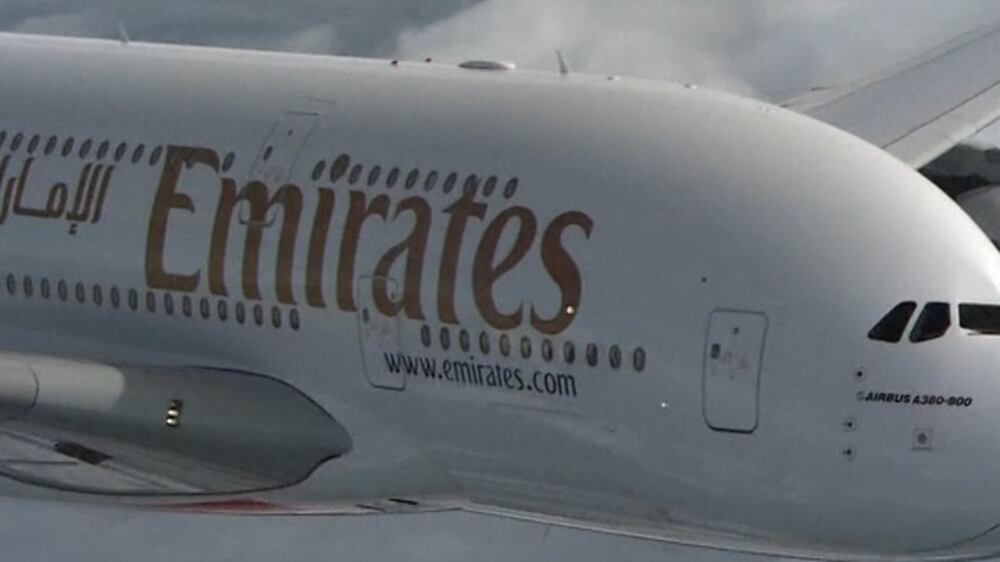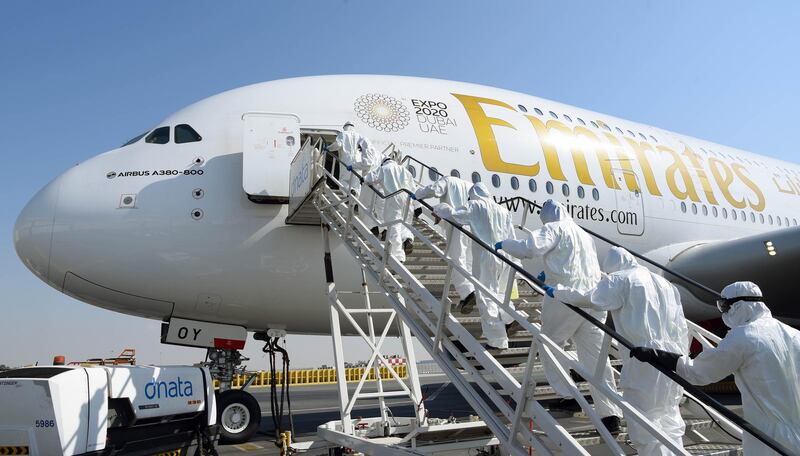Emirates airline president Tim Clark urged governments to take immediate action to restart aviation and avert the collapse of operators that have already been bailed out as a result of the coronavirus crisis.
“It is important that governments understand – I am sure they are aware of other priorities in their economies – but this [aviation] business is at a critical and very fragile state at the moment and it needs all the help it can get,” Mr Clark told the Arabian Travel Market, which was held by video conference, on Monday.
Emirates to lay off staff

He said lifelines for airlines were needed, otherwise “I am not optimistic that some of the [airlines] that are here today, and have already been significantly bailed out, will get through the next few months”.
Ensuring that airlines, passengers and freight are moving again is necessary for the aviation industry, whose biggest priority right now is to survive the crisis.
Covid-19 has disrupted global supply chains, brought the travel industry to a halt and forced governments to close borders and shut all but essential businesses.
The world economy is set to contract by 3 per cent this year and slide into a deep recession, according to the International Monetary Fund.
Governments are gradually relaxing restrictions and reopening economies four months after the World Health Organisation declared Covid-19 a pandemic.
However, restrictions such as mandatory quarantine on arrival in some countries such as the UK, and limited cross-border access in regions such as Europe, Asia and North America will dampen the recovery of the travel industry.
Airlines face a severe liquidity crisis and bankruptcy after revenue dried up because of reduced capacity or passenger flight suspensions.
Mr Clark said the longer planes remain grounded, the closer an airline would get to “a point of no return”.
“A lot of the current fleet today is [geared] on debt ... [through] all sort of financial structures. The notion that you will simply ground them and say that is OK, it is not,” he said.
“You have contractual obligations ... and this is the real problem. The trick is to get them flying and generating the income as quickly as possible.”
Mr Clark said aircraft manufacturers were already seeing the signs that further orders are being delayed or cancelled.
“Unfortunately, until we get income coming back to this business, to the levels prior to Covid-19, it is anybody’s guess how each [airline] is going to manage [business in the] short, medium and long term.”
He said airlines are “nowhere confident enough” of the current economic situation and their cash flows to order jets.
“Will it come back [aircraft orders] in 2023 to 2024? Probably, but I don’t think it will happen before that,” Mr Clark said.
Despite headwinds, Emirates, the world’s biggest long-haul airline, plans a gradual return to operations in the coming months.
The airline resumed regular passenger flights to nine destinations – London, Frankfurt, Paris, Milan, Madrid, Chicago, Toronto, Sydney and Melbourne – from May 21, the first regular, non-repatriation flights out of Dubai since March 24.
It has also opened bookings for flights to 12 Arab countries from July.
Mr Clark said he does not see a meaningful sharp increase in demand until next summer, provided a vaccine for Covid-19 is developed by early 2021 and an inoculation programme carried out.
It will, however, take the airline a few years before it can go back to pre-outbreak levels of operations, he said.
“I think probably by 2022-23, 2023-24, we will see things coming back to some degree of normality and Emirates will be operating its network as it was, and hopefully, as successfully as it was,” he said.
The airline, Mr Clark said, will continue to work closely with low-cost airline flydubai.
“On the flydubai side of things, irrespective of Covid-19, the plan was to ... extract route synergies ... both [airlines] are working far, far closer together. That was the ongoing process until we got to the hard stop,” he said. “As soon as we get through this, that bridging, that building will continue.”
Mr Clark said the intention going forward is to assess where this relationship can be activated a little bit more “meaningfully, more profitably” so that the two airlines can continue to grow together.
On Emirates’ working relationship with Etihad Airways, Mr Clark said the Abu Dhabi airline is going through a reorganisation phase. He said the two airlines will discuss co-operation once Etihad has reached its desired size.








